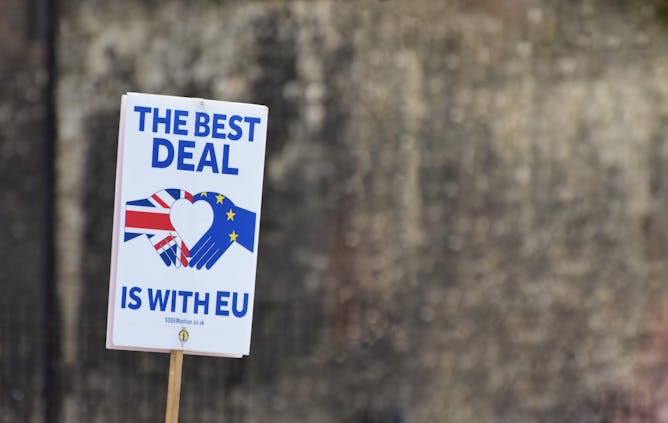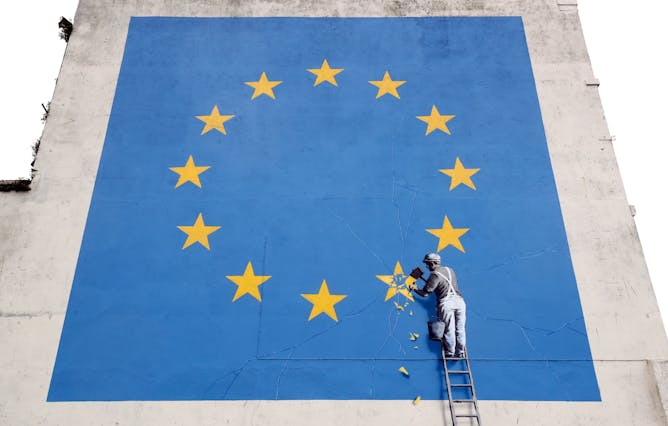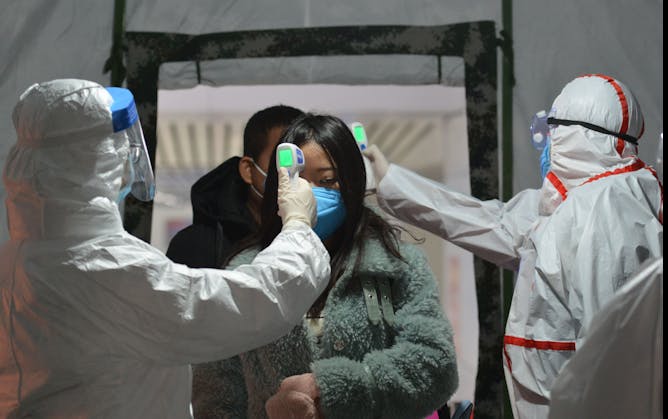|
|
|
Editor's note
|
|
Three and a half years on from the Brexit vote, the UK is officially leaving the EU at 11pm tonight. Boris Johnson is delivering his promise to “get Brexit done”. But what Brexit actually entails is still up for grabs. The government’s task of negotiating the UK’s future relationship with the EU and other powers now begins in earnest. A survey of the general public reveals that people are split on which trade deals they want to prioritise. While most Leave voters want to put a deal with the US first, overall people think the EU and Canada should be the focus.
One thing everyone seems to agree on is that food is the most important issue on the negotiating table. This probably reflects concerns around importing chlorinated chicken from the US and shortages if there’s a no-deal Brexit. One thing we can be sure of, though, is that the UK’s food connection with Europe will endure after Brexit. Even when England and France were at war in the 18th century, they still traded in a number of dishes. For
those wondering what’s next, we’ve got a handy timeline of the Brexit process that lies ahead.
Elsewhere on The Conversation, we’ve got more coverage of what’s going on with the coronavirus, including why China’s containment strategy could prove effective – even if it means quarantining a city of 11 million people. We also find out why one researcher has spent seven months studying toilet graffiti.
|
Annabel Bligh
Business + Economy Editor
|

|
|
Top stories
|

Remain voters overwhelmingly prioritise a deal with the EU.
Amani A / Shutterstock.com
Daniel Keith, University of York; Liisa Talving, University of Tartu; Sofia Vasilopoulou, University of York
How the public ranks different post-Brexit trade partners and which sections of the economy they prioritise.
|

This is just the beginning of the story.
PA/Gareth Fuller
Simon Usherwood, University of Surrey
It’s rapidly becoming a truism to say that Brexit isn’t done. But what does that actually mean?
|

Body temperature being checked at the exit of a railway station in Fuyang, Anhui province, China, January 29 2020.
AN Ming/EPA
Fei Chen, University of Liverpool
China’s strategy to contain the coronavirus just might work because of the way cities and infrastructure have been developed.
|

The graffiti in the men’s toilets tends to be more competitive while in the women’s it is more supportive.
Kostsov/Shutterstock
Mabel Victoria, Edinburgh Napier University
From crude drawing to advice and support, the scrawlings on toilet walls reveal differing communication patterns between the sexes
|
Health + Medicine
|
-
Maciej F. Boni, Pennsylvania State University
Scientists do not yet know the severity of the current coronavirus. A biologist who worked on the 2009 flu pandemic offers insights on that outbreak as well as the SARS outbreak.
|
|
Arts + Culture
|
-
Rachel Rich, Leeds Beckett University; LWSmith, University of Essex
Britain's food relationship with Europe goes back centuries – is it unlikely to end post=Brexit.
|
|
Education
|
-
Emeline Brulé, University of Sussex; Matt Rafalow, University of California, Berkeley
Privileged children get to use phones in school while others face bans for 'messing around''.
|
|
Business + Economy
|
-
Greig Paul, University of Strathclyde
After Theresa May passed the buck, her successor has put pragmatism first.
|
|
Politics + Society
|
-
Brendan Ciarán Browne, Trinity College Dublin
A view from the West Bank on Donald Trump's 'deal of the century' for Israel and Palestine.
|
|
Science + Technology
|
-
Coral Dando, University of Westminster
There are psychological techniques that are effective when it comes to getting people to yield information.
|
|
Environment + Energy
|
-
Seamus Garvey, University of Nottingham
Britain's electricity supply is getting greener but the burning question remains over how to decarbonise heating.
-
Lulu Zhang, United Nations University
Although China's tree-planting efforts have increased carbon sequestration for climate mitigation and protected the soil from erosion, they have also led to drastic water shortages.
-
Jordan Raine, The Conversation
We all need to eat. Experts imagine how the next agricultural revolution can feed us while fighting climate change and habitat destruction, instead of accelerating it.
|
|
| |
Featured events
|

|
5 West 2.1, University of Bath, Claverton Down, Bath, Bath and North East Somerset, BA2 7AY, United Kingdom of Great Britain and Northern Ireland — University of Bath
|

|
Bowland Auditorium, Berrick Saul Building, Campus West, York, York, YO10 5DD, United Kingdom of Great Britain and Northern Ireland — University of York
|

|
Yorkshire Room, JB Morrell Library, Campus West, York, York, YO10 5DD, United Kingdom of Great Britain and Northern Ireland — University of York
|

|
Blackbox Theatre, Theatre, Film and Television Building, Campus East, York, York, YO10 5GB, United Kingdom of Great Britain and Northern Ireland — University of York
|
|
|
|
| |
| |
| |
| |
| |
|
|
|
|
|
|
|